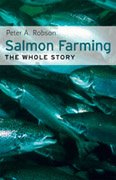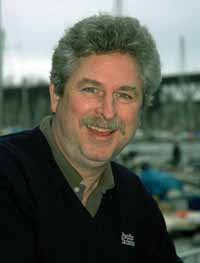A Note from the Author
My interest in salmon farming grew naturally out of all of these activities. The industry began generating controversy almost from the start, and the issues surrounding it were my issues—the impact on the environment and wild salmon, the question of whether farmed salmon was safe to eat, and so on. As the controversy grew, so did the polarization between those supporting the industry and those opposed to it. I didn’t trust the media, government or industry to give me the whole truth. What was the real impact of this new industry? Was it as bad as some people said, or as harmless as others suggested? Was it hurting the marine environment and wild salmon? How, and how much?
The subject was irresistible. Before long I was poring over thousands of pages of data and screens full of information, and I was interviewing experts from government, industry and anti-salmon farm citizens’ groups—just about everyone I had met during 15 years of writing and publishing material on West Coast waterways, wildlife and resource industries. I read, considered and researched every claim about salmon farming, for and against. I also visited salmon farms and talked to salmon-farm opponents.
In the end, I didn't find any simple answers, and I hadn’t expected to. But I did learn a great deal about the business of raising fish in captivity and I explored all of the major issues—sustainability, disease, sea lice, salmon-farm waste and pollution, escapes, safety of eating farmed salmon and impact on our aquatic ecosystems. I tried to find out everything we know, and—perhaps most important—what we don’t know.
Almost from the moment that the first netpens went into B.C. waters in the 1970s, salmon farms have been contentious. Controversy can be a good thing. To introduce a non-indigenous species of fish into our waters, to confine large numbers of this species in netpens, to feed them pellets and protect them from predators and disease is by definition not purely a natural act. Neither, however, is it natural to raise wheat, corn, genetically modified soybeans, chickens, cattle or anything else produced on farms and ranches.
We should be concerned about all agricultural activities, not only because we are consuming the end products but because these activities typically have significant impacts on our environment, and in harming the environment, we have only begun to feel the backlash. For evidence we only have to look at the many persistent organic pollutants used intentionally to grow more food faster and to provide us with manufactured products to make life "better." Those chemicals have found their way into every living thing on earth, and we are only now beginning to understand their long-term impacts on human health and the environment.
The more British Columbians get involved in decisions about how and where our food is produced, the more responsible and workable those decisions will be. We can best participate by looking past the spin, hype and controversy, and informing ourselves as best we can. This book is a step in that direction.
—Peter A. Robson

